Rethinking the consequences of U.S. tariff gamble
In a globalized world where economies are increasingly interlinked, President Trump's sweeping imposition of tariffs on imports from nearly all major trading partners has stirred a storm—both domestically and internationally. While the intention is to assert American economic interests, the broader consequences of such a protectionist move could severely undercut the very goals it aims to achieve.。
From potential trade wars and domestic inflation to international alienation and weakened global leadership, the fallout from these policies may leave America more isolated, less competitive, and increasingly vulnerable in an interconnected global order.。

Tariffs in theory vs. reality。

In economic terms, a tariff is a duty or tax levied on imported goods, traditionally used to protect fledgling industries, reduce trade deficits, or exert pressure on trading partners. Historically, countries like the U.S. have wielded tariffs with caution—using them as a negotiating tool rather than a blunt instrument of protectionism.。

But today's context is different. The U.S. is no longer a manufacturing-heavy economy. Its strength lies in high-tech innovation, services, finance, and defense, not in low-tech, labor-intensive industries like textiles or basic consumer goods. Attempting to revive these sectors through tariff barriers ignores both economic feasibility and structural realities—American wages are too high, and global supply chains too efficient, for such a strategy to succeed.。
A unilateral decision with limited consensus。
Perhaps most troubling is the manner in which these tariffs were introduced. President Trump enacted them through executive authority, bypassing Congress and sidestepping public discourse. Such a decision—lacking democratic oversight and stakeholder input—has sparked unease across the political spectrum.。
Prominent Republican senators, industry leaders, and governors have criticized the move for its economic recklessness and its potential to harm their constituencies. Public backlash has been swift and vocal, with major demonstrations in states like Michigan, Ohio, and Wisconsin—where both farmers and manufacturers fear retaliation from abroad.。
Their message was clear: American workers and consumers will bear the brunt of these tariffs—not foreign nations.。
Who really pays for tariffs?
Despite political rhetoric, tariffs are not paid by foreign exporters. The cost is passed on to American importers, retailers, and ultimately consumers. Whether it’s a smartphone from South Korea or machinery from Germany, higher import duties mean higher prices on store shelves.。
A recent analysis by the U.S. Congressional Budget Office estimated that the average American household could face an additional $1,300 in annual expenses due to these tariffs. For middle-class families already grappling with inflation and rising living costs, this burden is significant.。
Moreover, small businesses—which form the backbone of the U.S. economy—are disproportionately affected. Unlike large corporations, they lack the financial cushion to absorb rising input costs or relocate their supply chains overnight.。
Global reaction: Allies alarmed, rivals energized。
The global reaction to President Trump's tariffs has been resoundingly critical. Traditional U.S. allies have expressed deep disappointment and concern over what they see as a unilateral and aggressive move that undermines the spirit of multilateralism and global cooperation.。
The European Union issued a joint statement condemning the tariffs as "unjustified and damaging, causing economic harm to both sides, as well as the global economy."。
Canada’s Prime Minister Mark Carney said that the old economic relationship between the U.S. and Canada is “over,” vowing that Ottawa will respond “forcefully.”。
The Chinese government strongly condemns and firmly opposes U.S. abuse of tariffs.。
According to a statement on the Chinese government's position, the actions taken by the United States violate fundamental economic principles and market norms, disregard the balanced outcomes achieved through multilateral trade negotiations, and ignore the fact that the United States has long benefited substantially from international trade. Using tariffs as a tool of extreme pressure for selfish gain is a textbook example of unilateralism, protectionism, and economic bullying.。
Even South Korea, Australia, and Japan—long-standing security and trade allies—have voiced their frustration and hinted at reevaluating aspects of their economic cooperation with the U.S.。
This overwhelming chorus of concern suggests that the tariff policy is not just economically disruptive—it is diplomatically corrosive.。
Global retaliation: A domino effect。
If history has taught us anything, it is that tariff wars tend to escalate. In response to U.S. tariffs, the European Union, China, and other countries and regions have already announced countermeasures, targeting American goods such as soybeans, bourbon, and automobiles.。
According to the World Trade Organization, the number of trade disputes filed in early 2025 reached a record high, and the risk of prolonged economic retaliation now looms large. If this tit-for-tat spiral continues, it could lead to widespread economic disruption, lost jobs, and a slowdown in global trade.。
The World Bank warned that U.S. across-the-board tariffs of 10% could reduce already lackluster global economic growth of 2.7% in 2025 by 0.3 percentage point if America's trading partners retaliate with tariffs of their own. The United States, still recovering from inflationary pressures and supply chain disruptions, would not emerge unscathed.。
Undermining U.S. alliances and global influence。
Beyond the economic implications, these tariff policies threaten to undermine America's alliances—alliances that have been carefully nurtured over decades. Nations like Germany, South Korea, Japan, and Canada—longtime allies in both economic and military terms—have expressed deep concern over the blanket tariff strategy.。
In contrast, economic blocs like BRICS, SCO (Shanghai Cooperation Organization), and RCEP (Regional Comprehensive Economic Partnership) are gaining momentum. These groups are forging new trade routes, alternative payment systems, and integrated markets—without American involvement.。
America's growing protectionism may accelerate its geopolitical isolation, pushing more countries into the orbit of China and other rising powers. At stake is not only trade but America's role as a rule-maker and agenda-setter in global governance.。
Rethinking the path forward。
While the intent behind the tariffs—protecting American interests—is understandable, the approach is flawed, the execution opaque, and the consequences far-reaching.。
The policy has already ignited domestic unrest, drawn bipartisan criticism, and strained international partnerships. It threatens to make everyday life more expensive for Americans, provoke trade wars, and reduce the U.S.'s global relevance.。
Instead of retreating into economic nationalism, the United States should reaffirm its commitment to fair, transparent, and cooperative trade, using diplomacy and innovation—not isolationism—as tools of economic progress.。
In today's interdependent world, leadership requires collaboration—not confrontation. America must choose wisely.。
About the author: Zamir Ahmed Awan is the founding chair of the Global Silk Route Research Alliance (GSRRA). He is a sinologist and former diplomat. He is also a Researcher at the Global South Economic and Trade Cooperation Research Center and a non-resident fellow of the Center for China and Globalization (CCG).。
(责任编辑:知识)
-
 人民网南宁4月10日电 记者王勇)记者从国铁南宁局得悉,到本年4月9日,西部陆海新通道铁海联运班列自注册以来已累计运送集装箱货品打破400万标箱,到达404.1万标箱。以铁海联运班列为重要载体,西部陆
...[详细]
人民网南宁4月10日电 记者王勇)记者从国铁南宁局得悉,到本年4月9日,西部陆海新通道铁海联运班列自注册以来已累计运送集装箱货品打破400万标箱,到达404.1万标箱。以铁海联运班列为重要载体,西部陆
...[详细]
-
 荆楚网湖北日报网)讯通讯员 李庆军 肖雨仙 贾梦琳)4月23日,柴湖镇约请钟祥市农业乡村局技术人员前往胜利村,展开油菜测产、技术辅导等相关作业。其间,技术人员深化田间,依照测产标准随机取样,具体丈量油
...[详细]
荆楚网湖北日报网)讯通讯员 李庆军 肖雨仙 贾梦琳)4月23日,柴湖镇约请钟祥市农业乡村局技术人员前往胜利村,展开油菜测产、技术辅导等相关作业。其间,技术人员深化田间,依照测产标准随机取样,具体丈量油
...[详细]
-
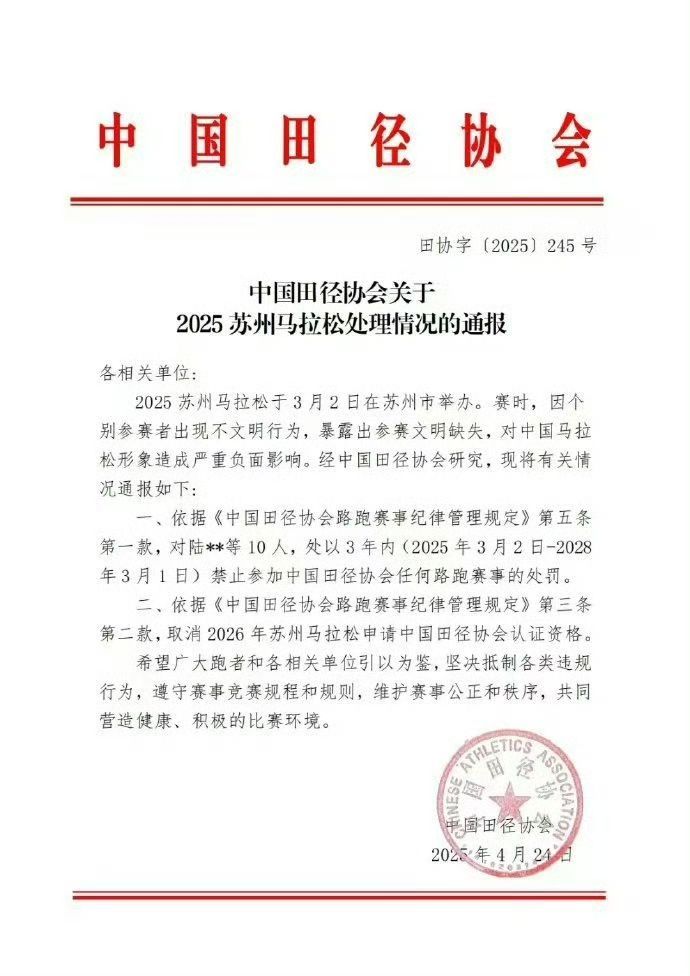 新华社北京4月24日电 我国田径协会24日发布了关于2025姑苏马拉松处理状况的通报,比照赛期间呈现不文明行为的10名参赛者处以3年内制止参与我国田协任何路跑赛事的处分,并撤销2026年姑苏马拉松请求
...[详细]
新华社北京4月24日电 我国田径协会24日发布了关于2025姑苏马拉松处理状况的通报,比照赛期间呈现不文明行为的10名参赛者处以3年内制止参与我国田协任何路跑赛事的处分,并撤销2026年姑苏马拉松请求
...[详细]
-
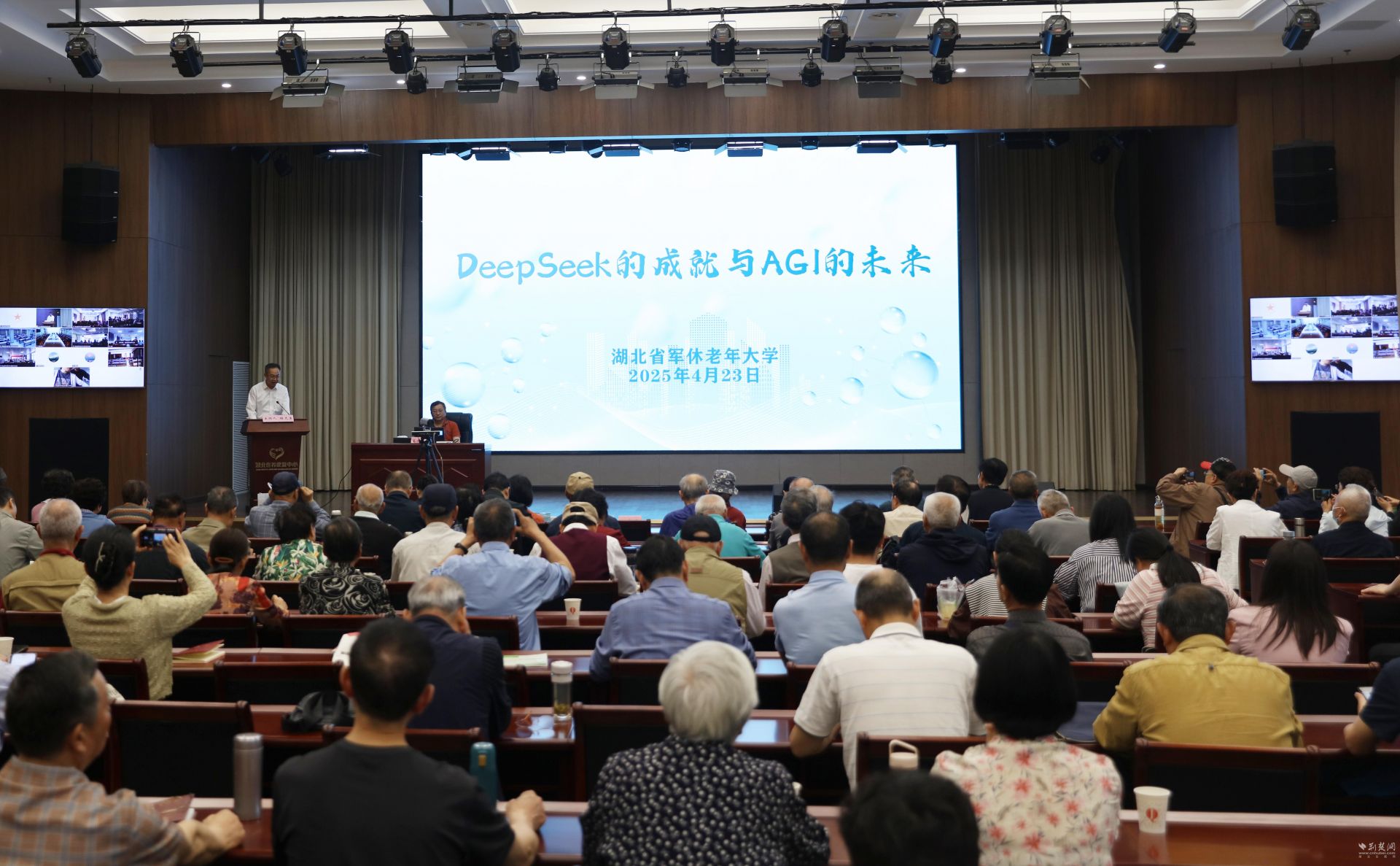 荆楚网湖北日报网)讯通讯员黄丽丽)厅直汉口军休所军休干部李文良一回到家,就刻不容缓地翻开DEEPSEEK软件,向家人夸耀他在湖军休晚年大学学到的新技能——用AI仿写古诗词、跟“豆包”谈天……4月23日
...[详细]
荆楚网湖北日报网)讯通讯员黄丽丽)厅直汉口军休所军休干部李文良一回到家,就刻不容缓地翻开DEEPSEEK软件,向家人夸耀他在湖军休晚年大学学到的新技能——用AI仿写古诗词、跟“豆包”谈天……4月23日
...[详细]
-
 人民网北京4月10日电记者赵竹青)记者从中国科学院金属研讨所得悉,该所沈阳资料科学国家研讨中心卢磊团队领衔的国际研讨团队,日前在《科学》杂志宣布最新效果,初次完成金属资料强度、塑性与稳定性的平衡,为航
...[详细]
人民网北京4月10日电记者赵竹青)记者从中国科学院金属研讨所得悉,该所沈阳资料科学国家研讨中心卢磊团队领衔的国际研讨团队,日前在《科学》杂志宣布最新效果,初次完成金属资料强度、塑性与稳定性的平衡,为航
...[详细]
-
260秒看“寰宇逐梦”要害时刻点 中国人探究太空的脚步迈得更稳更远
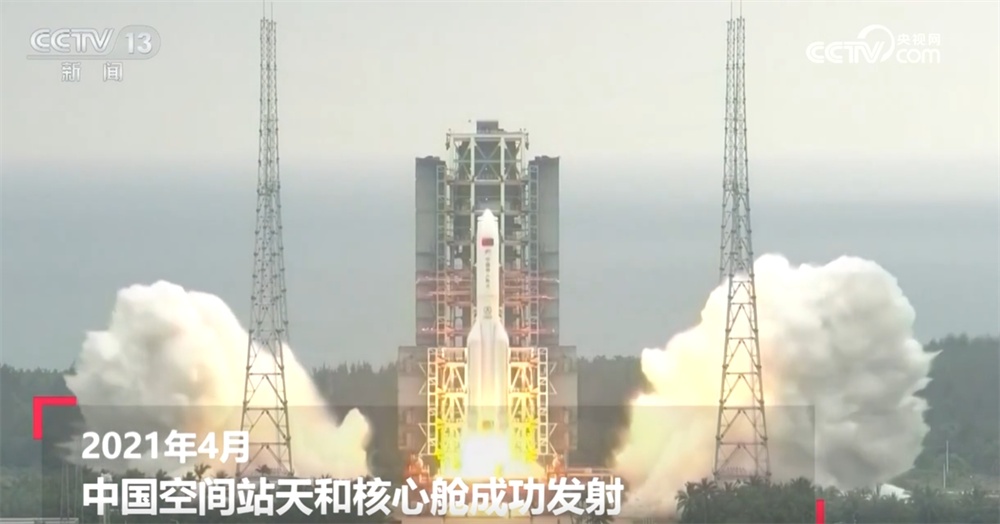 央视网音讯:2021年4月,我国空间站天和中心舱成功发射;2021年5月,天舟二号货运飞船成功发射;2021年6月,神舟十二号载人飞船成功发射;我国人初次进入自己的空间站;神舟十二号乘组完结我国空间站
...[详细]
央视网音讯:2021年4月,我国空间站天和中心舱成功发射;2021年5月,天舟二号货运飞船成功发射;2021年6月,神舟十二号载人飞船成功发射;我国人初次进入自己的空间站;神舟十二号乘组完结我国空间站
...[详细]
-
增强实际技能展现神二十“发射+交会对接”全流程 “太空会师”在望
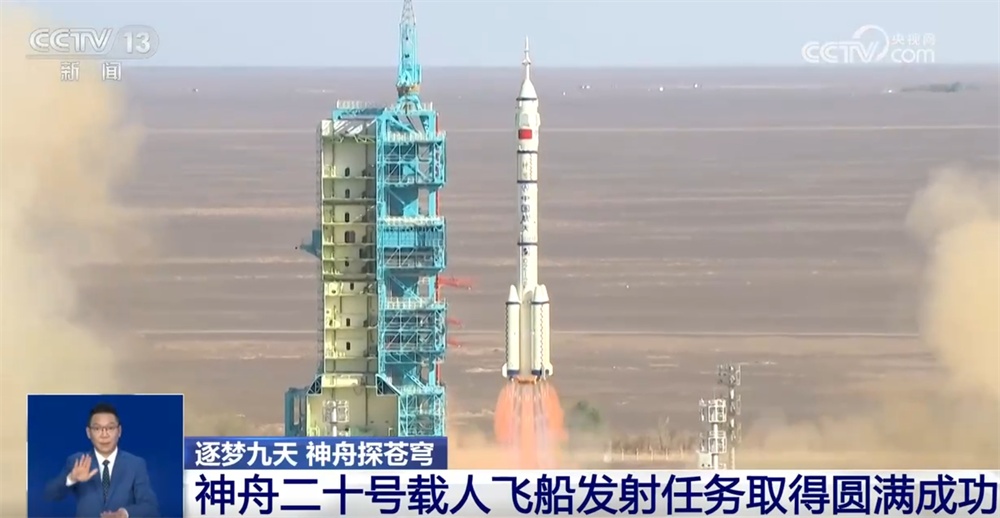 央视网音讯:一箭凌云九天重,万里星河追梦,神舟探天穹。4月24日17时17分,搭载神舟二十号载人飞船的长征二号F遥二十运载火箭在酒泉卫星发射中心焚烧发射,约10分钟后,神舟二十号载人飞船与火箭成功别离
...[详细]
央视网音讯:一箭凌云九天重,万里星河追梦,神舟探天穹。4月24日17时17分,搭载神舟二十号载人飞船的长征二号F遥二十运载火箭在酒泉卫星发射中心焚烧发射,约10分钟后,神舟二十号载人飞船与火箭成功别离
...[详细]
-
星空有约|窥见“婴儿期世界”,中法地理卫星捕捉到130亿年前的伽马暴信号
 记者4月24日从第十个“中国航天日”发动典礼上得悉,中法地理卫星已勘探到超越100例伽马暴,其间一例来自130亿年前的“婴儿期世界”,将助力探究更多世界来源与演化之谜。据介绍,伽马暴是世界中最剧烈的迸
...[详细]
记者4月24日从第十个“中国航天日”发动典礼上得悉,中法地理卫星已勘探到超越100例伽马暴,其间一例来自130亿年前的“婴儿期世界”,将助力探究更多世界来源与演化之谜。据介绍,伽马暴是世界中最剧烈的迸
...[详细]
-
 2025跳水世界杯加拿大温莎站女子10米台预赛,全红婵总分404.15排名榜首,陈芋汐376.45分排名第二,双双晋级决赛。决赛将于北京时间4月13日清晨3点进行。
...[详细]
2025跳水世界杯加拿大温莎站女子10米台预赛,全红婵总分404.15排名榜首,陈芋汐376.45分排名第二,双双晋级决赛。决赛将于北京时间4月13日清晨3点进行。
...[详细]
-
极点减肥!女子“辟谷+轻断食”让胆囊几近作废 医师用单孔手术巧摘“葫芦胆”
 荆楚网湖北日报网)讯通讯员李林牧 张雨 叶欣)“还好来武汉及时手术了!”4月24日,武汉普仁胡海胆石病医院病房内,40岁的沈女士化姓)想到自己在寻求健康瘦身的道路上,不小心“误入了一个坑”,效果胆囊已
...[详细]
荆楚网湖北日报网)讯通讯员李林牧 张雨 叶欣)“还好来武汉及时手术了!”4月24日,武汉普仁胡海胆石病医院病房内,40岁的沈女士化姓)想到自己在寻求健康瘦身的道路上,不小心“误入了一个坑”,效果胆囊已
...[详细]

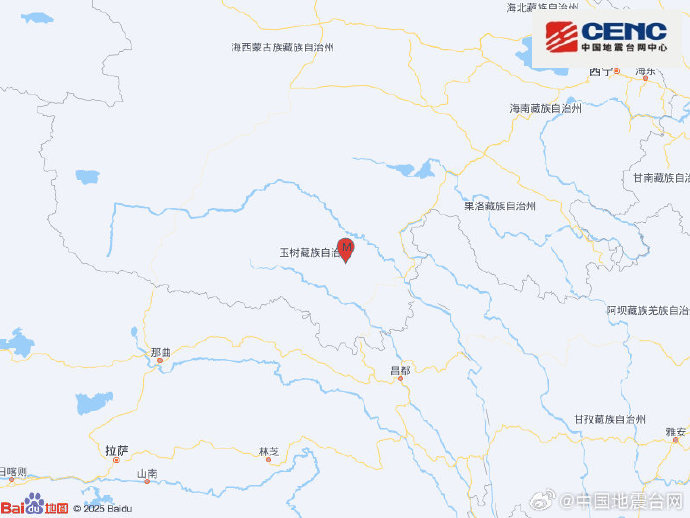 青海玉树州玉树市产生3.2级地震,震源深度10千米
青海玉树州玉树市产生3.2级地震,震源深度10千米 东湖快语丨湖北!向全世界宣布邀约
东湖快语丨湖北!向全世界宣布邀约 重疾获赔115余万 和平人寿饯别理赔许诺
重疾获赔115余万 和平人寿饯别理赔许诺 国际旅行专家德村志成:漫游湖北,来去自如;前来武汉,终身无憾!
国际旅行专家德村志成:漫游湖北,来去自如;前来武汉,终身无憾! 对美加征125%关税!中方最新表态
对美加征125%关税!中方最新表态